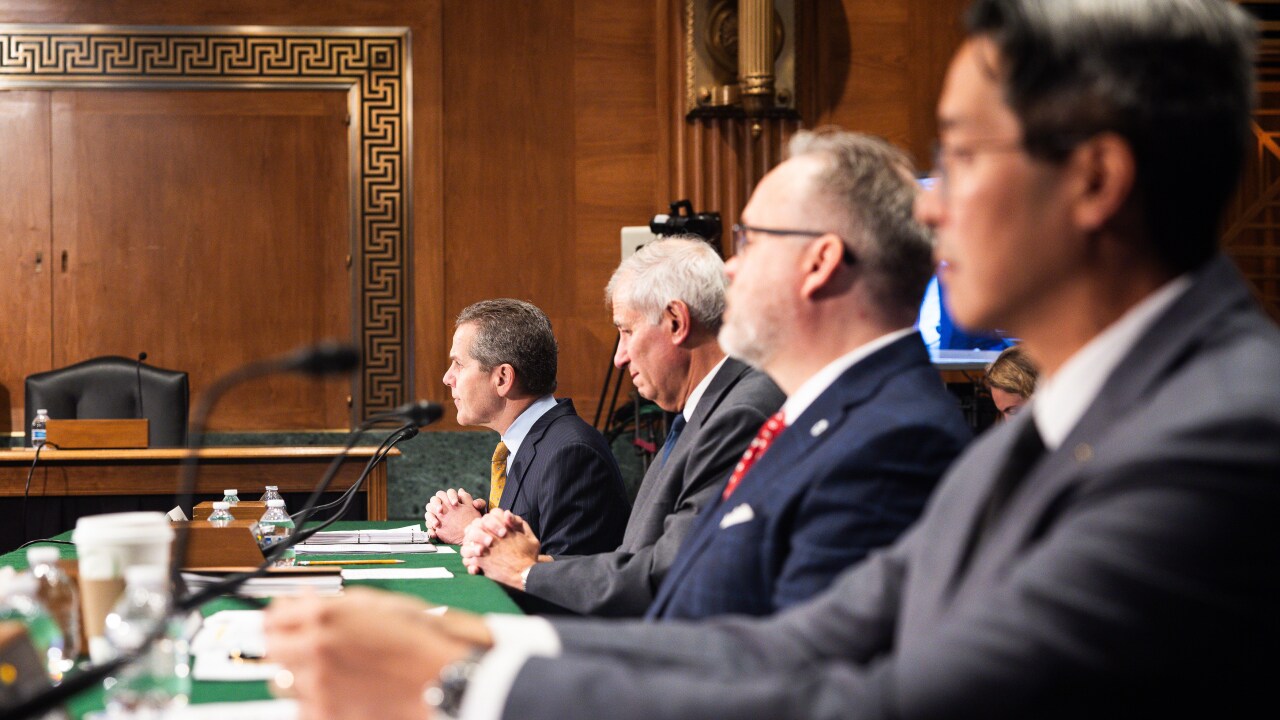
Last month's Supreme Court ruling
The decision —
Custodia, a Cheyenne, Wyoming-based digital asset bank, was
The lawsuit largely hinged on whether a
The Loper case marked the end of a concept known as Chevron deference. The doctrine — which derives its name from a 1984 Supreme Court ruling in a case involving the energy conglomerate — held that agencies had the ability to interpret ambiguous authorities granted to them by Congress. Such interpretations now
Judge Scott Skavdahl, the district court judge who ruled on the Custodia case earlier this year, did not cite the Chevron case — Natural Resources Defense Council vs. U.S. EPA — in his ruling. Likewise, it was not referenced by the Fed Board of Governors or the Kansas City Fed in their opposition filings.
Still, in light of the Loper case, some say there is new ground for challenging the Fed's reading of the law.
Last week, Paul Clement, who represented Loper Bright, wrote an amicus brief in support of Custodia on behalf of two crypto trade groups, the Digital Chamber of Commerce and the Global Blockchain Business Council. In it, he argued that the lower court's ruling violates two key structures of the Constitution: "the vertical constraint of federalism and the horizontal constraints imposed by separation of powers doctrines."
Specifically, he said the outcome undermines the dual banking system by giving federally supervised banks an advantage over those supervised only at the state level. The brief added that the district court's ruling raises questions about the structure of the Federal Reserve System, including the powers granted to the 12 quasi-governmental regional reserve banks, which are technically private entities but still carry out key functions for the central bank — namely, in this instance, the granting of master accounts.
"In short, the district court's interpretation affords politically unaccountable Federal Reserve Bank presidents unchecked discretion to unilaterally undermine state banking law and deprive state-chartered banks of any ability to engage in meaningful financial operations," Clement wrote. "That reading is not only contrary to the statutory text, but raises serious concerns on two distinct constitutional dimensions."
Michael Pepson, regulatory counsel for Americans for Prosperity — a conservative political action committee that frequently writes amicus briefs on cases of interest — also cited the Loper ruling in a brief filed in support of Custodia. He argues that the Fed's "discretionary assertion" that it has the ability to deny master accounts contradicts previous policy stances put out by the central bank.
"The Federal Reserve's longstanding practices further underscore that neither it nor the Kansas City Fed have discretion to deny master account applications from eligible depository institutions," Pepson wrote.
He added that the court should "reject any suggestion by the Board or Kansas City Fed that their decision is outside of the scope of this Court's purview."
Three members of Congress — Sens. Cynthia Lummis and Steve Daines along with Rep. Warren Davidson — also submitted an amicus brief in support of Custodia, as did former Sen. Pat Toomey, Wyoming Attorney General Bridget Hill and the Blockchain Association, a crypto trade group.
The Fed declined to comment on the amicus briefs or their assertions.
Caitlin Long, founder and CEO of Custodia, declined to say what role the Loper decision would play in her company's legal strategy moving forward, but noted that it — along with several other recent decisions — indicates that the Supreme Court is looking at administrative law disputes in a new and more critical light.
"The reaction to this particular Supreme Court term, which just ended, has been a theme of curbing federal regulatory agency authority," Long said. "And Loper Bright, of course, is one example of that."








